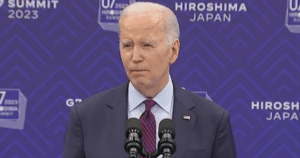GOP Congressman Claims Biden Admin Ignoring Iranian Threats on Trump
Representative Criticizes Biden's Response to Iranian Threats
In a vocal rebuke, GOP Representative Michael Waltz has accused the Biden administration of inadequately responding to ongoing Iranian threats against former President Donald Trump. Highlighting a recent cyber-attack targeting Trump’s campaign and disclosures of an assassination plot, Waltz argues that the administration's silence emboldens further attempts against Trump.
Rep. Waltz contends that the administration's lack of a vocal response to Iran's actions effectively permits continued threats against the former president.
According to Waltz, the Biden administration’s muted responses are seen by Iran as tacit permission to continue their hostile actions. He states that U.S. sanctions and public denouncements need to address these threats more aggressively. Iran has been implicated in numerous interventions in U.S. politics, including hacks and assassination plots.
Details of the Hacking Incident and Leaked Campaign Materials
The campaign team for Donald Trump, alongside Microsoft, confirmed that Iranian hackers infiltrated Trump’s election campaign servers. This breach led to the leaking of sensitive campaign materials concerning other Republican figures such as JD Vance and Marco Rubio. These documents were compiled by the law firm Brand Woodward.
Steven Cheung, Trump's campaign communications director, remarked that the document leaks constituted "foreign meddling" intended to disrupt America's democratic process. These incidents are viewed by many as attempts to undermine the integrity of U.S. elections.
Further exacerbating concerns, Waltz pointed to specific Iranian assassination attempts that targeted Trump directly. One plot involved Asif Merchant, a Pakistani national in New York City who was reportedly recruiting spotters and hit men, planning to use protesters for distractions to facilitate an assassination.
Assassination Attempts and U.S. Responses
U.S. Attorney General Merrick Garland later confirmed Trump was indeed the target of Merchant’s plot. Waltz criticized the Department of Justice’s handling of the information, suggesting that their failure to name explicitly Trump was an attempt to downplay the severity of these threats.
Iran's motivations are partially attributed to their desire for revenge following Trump's 2020 decision to eliminate Iranian General Qasem Soleimani, who was planning attacks against Americans. This incident has evidently left deep-seated intentions for retaliation against Trump among Iranian hardliners.
Despite Iran's vehement denials through their Permanent Mission to the United Nations, claiming no involvement "in any activities intended to influence the U.S. election," these assertions stand in stark contrast to the views held by U.S. intelligence and various administration critics.
Security Concerns Over Recent Assassination Attempt
A recent incident during a rally in Butler, where Trump was slightly injured, was initially seen as a domestic issue. However, ongoing investigations are delving into potential foreign involvements and examining any links to Iran, among other security considerations.
This attack has raised significant concerns about potential lapses in security and the motivations behind such actions, considering Iran’s known hostility.
Rep. Waltz’s critique extends beyond specific incidents, implicating the broader diplomatic posture of the Biden administration towards Iran. He argues that policies under President Biden and Vice President Harris have been perceived as lenient compared to the staunch stance taken by Trump, thereby affecting U.S. deterrent measures against Iranian aggressions.
Summary of Accusations and Administration’s Diplomatic Stance
The disputes highlight a complex intersection of national security, international diplomacy, and electoral integrity. The alleged actions of Iran and the perceived disregard of the current U.S. administration build a narrative of controversy and concern among U.S. politicians and strategists alike.
As U.S.-Iran relations continue to be strained, the specific handling of threats to former leaders and the implications for U.S. foreign policy remain focal points of contention and crucial matters for national discourse.
In conclusion, Representative Waltz accuses the Biden administration of failing to adequately respond to Iranian threats against former President Trump, implicating broader issues of security and international relations. The controversy touches on hacking incidents, leaked campaign materials, assassination plots, and differing international relations stances under successive U.S. administrations.




